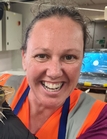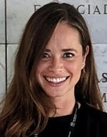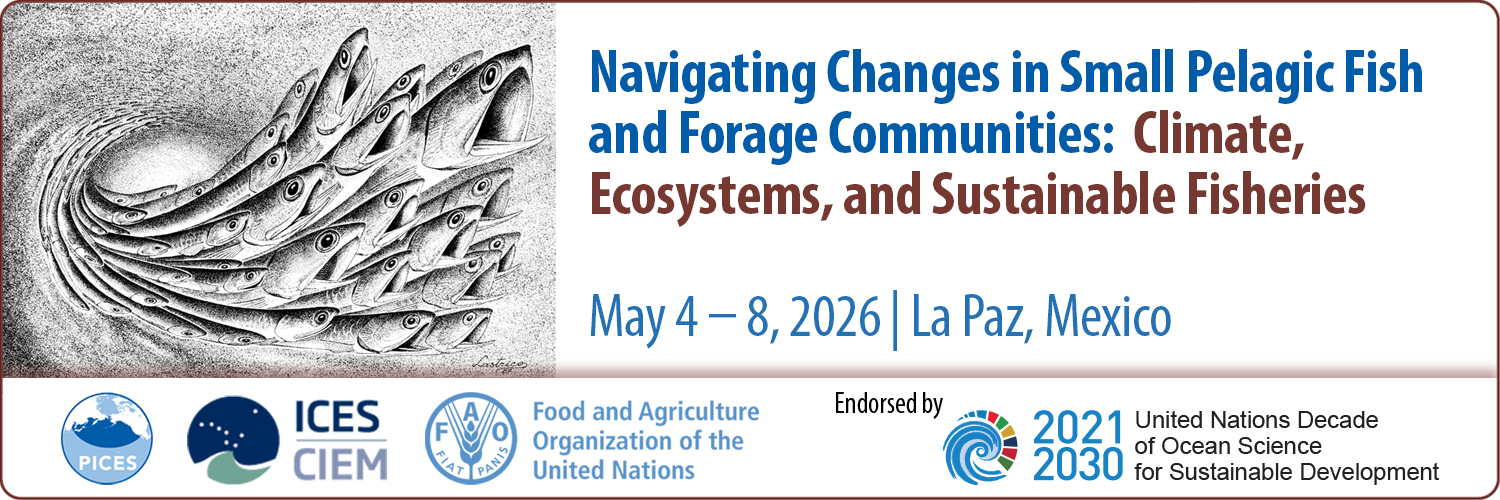
Plenary and Invited Speakers
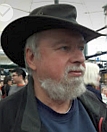
Jürgen Alheit
Dr. Jürgen Alheit is a retired German fisheries biologist who is interested in the impact of climate variability on small pelagic fish (SPF) and their ecosystems. He worked in marine science institutions in the UK, Germany, and Peru and for the Intergovernmental Oceanographic Commission (IOC) of UNESCO, where he was responsible for the Programme on Ocean Sciences in Relation to Living Resources of which the Sardine–Anchovy Recruitment Project (SARP) was a major component. Jürgen chaired the German Global Ocean Ecosystem Dynamics (GLOBEC) project and served on the GLOBEC International Scientific Steering Committee throughout its entire duration. Within GLOBEC, he led the Small Pelagic Fish and Climate Change (SPACC) Initiative and the Retrospective Analysis Modul. SPACC facilitated global research collaboration on SPF from 1994 to 2010, and culminated with the publication of a review book “Climate Change and Small Pelagic Fish” for which Jürgen was one of co-editors. He played a critical role in revitalizing global international cooperation on investigations of SPF after the end of SPACC by suggesting to launch the Small Pelagic Fish Symposium series, and served as the convenor of the first symposium in this series on “Drivers of Dynamics of Small Pelagic Fish Resources“ held in March 2017 in Victoria, Canada (SPF-2017).
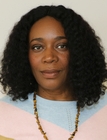
Maria de Lourdes Sardinha Benguela Current Commission
Ms. Maria de Lourdes Sardinha is the Executive Secretary of the Benguela Current Commission (BCC). Prior to taking on this role, she worked for more than 10 years at the Institute of Fisheries and Marine Resources in Angola, and then served as the Fisheries Director at the Angolan Ministry of Fisheries and Sea. Ms. de Lourdes Sardinha participated, with various functions, at the Benguela Current Large Marine Ecosystem (BCLME) Programme, including leading the Activity Centre for Biodiversity, Ecosystem Health and Marine Pollution. She was actively involved in the negotiation process towards the development of the treaty that solidifies the BCC as a permanent inter-governmental organization. Maria holds a Master’s Degree in Fisheries Biology and Management.
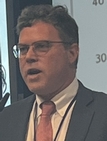
Myron Peck Royal Netherlands Institute for Sea Research, Netherlands
Prof. Myron Peck is Head of the Department of Coastal Systems at the Royal Netherlands Institute for Sea Research (NIOZ) and Special Professor of Life Cycle Ecophysiology of Marine Animals at Wageningen University, the Netherlands. His collaborative research integrates laboratory experiments on ecophysiology, field surveys and process studies of species and communities, and bio-physical and food web modeling to help gain a cause-and-effect understanding of how climate change and other interacting stressors influence estuarine and marine systems. The main goal is to provide robust, science-based advice for policy and management of living marine resources. Myron has been the scientific coordinator of several, large-scale EU projects (CERES, FutureMARES, ACTNOW) on topics such as nature-based solutions, sustainable fisheries, aquaculture, offshore windfarm development, and impacts of multiple pressures on coastal and marine ecosystems. Formerly, he was the co-chair of the ICES-PICES Strategic Initiative on Climate Change Impacts on Marine Ecosystems, co-chair of the ICES-PICES Working Group on Small Pelagic Fish, and a chief scientist for the GLOBEC Germany program. He is the Coordinating Editor-in-Chief of Marine Ecology Progress Series.
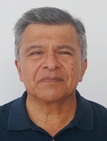
Ruben Rodriquez-Sanchez Centro Interdisciplinario de Ciencias Marinas, Instituto Politécnico Nacional (IPN-CICIMAR), Mexico
Dr. Rubén Rodriguez-Sanchez is currently a Senior Researcher at the Interdisciplinary Center of Marine Sciences (Centro Interdisciplinario de Ciencias Marinas – Instituto Politécnico Nacional; CICIMAR-IPN) in La Paz, Baja California Sur, Mexico. He has built his entire academic and professional career at this institution since 1977, completing here both his undergraduate and graduate studies and serving in various academic and administrative leadership roles. Rubén’s research has focused on small pelagic fishes from multidisciplinary perspectives. Throughout his career, he has collaborated with leading international researchers on topics such as the taxonomy of sardines and anchovies in the Eastern Central Pacific, reproductive cycles, genetics, functional morphology, and the influence of environmental variability across spatial and temporal scales on the distribution and abundance of small pelagic fishes. Over the past decade, Rubén has also contributed to international collaborative projects involving satellite-tagging migration studies and captive research on large pelagic fish species, such as mahi-mahi. As a professor at CICIMAR-IPN, he has combined frontier research with teaching, mentoring master and PhD students, as well as early-career researchers from local, national, and international universities.
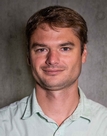
Ryan Rykaczewski Pacific Islands Fisheries Science Center, NOAA-Fisheries, USA
Dr. Ryan Rykaczewski is a marine scientist at the National Oceanographic and Atmospheric Administration’s (NOAA) Pacific Islands Fisheries Science Center in Honolulu, USA. His research explores how climate processes—both natural and human-driven—affect fisheries and the productivity of ocean ecosystems. Ryan studies how physical forces shape nutrient availability, oxygen levels, ocean chemistry, and plankton communities, with the goal of understanding what long-term climate change means for marine populations and the people who depend on those resources. While much of his work focuses on the open-ocean ecosystems of the North Pacific, he is also interested in making comparisons with other regions to better understand the links between ocean physics, biology, and human activity. Ryan earned his PhD from the Scripps Institution of Oceanography at UC San Diego and was an Associate Professor at the University of South Carolina before joining NOAA. He also served as co-chair of the joint PICES-ICES Working Group on Small Pelagic Fish (WG43/WGSPF).

Claus Reedtz Sparrevohn Danish Pelagic Producers Organisation (DPPO), Denmark
Dr. Claus Reedtz Sparrevohn has been acting as Chief Science Officer for the Pelagic fishing sector in Denmark for more than 10 years. He holds a PhD degree from Wageningen University in the Netherlands, and during his academic career worked with stock enhancement projects and recreational fishery. His present work has been centered around strengthening science-based collaboration between the fishing sector, fish producers, management, and scientific bodies such as ICES. Industry-driven data collection has been developed, starting with improving catch sampling, implementing self-sampling programs, designing industry surveys, development of selective gear, hosting industry PhD’s, and from 2024 having a full CCTV program has been in place for the vessels in the Danish pelagic sector, providing a whole new avenue of data.
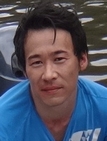
Akinori Takasuka The University of Tokyo, Japan
Dr. Akinori Takasuka is a Professor of the Department of Aquatic Bioscience, Graduate School of Agricultural and Life Sciences, the University of Tokyo, Japan. After completing his PhD in 2003, he worked for the National Research Institute of Fisheries Science, Japan Fisheries Research and Education Agency. In April 2019, he returned to the school where he studied for his BSc, MSc, and PhD, and his focus is now on education of junior fellows of the Fisheries Biology Laboratory. He has been working in the fields of Fisheries Biology and Oceanography. His current major research themes include biological mechanisms behind climate impacts on population dynamics of small pelagic fish, growth and survival dynamics during the early life stages of fish, and density-dependent and density-independent processes in the life history of fish. Akinori served as a co-chair of the joint PICES/ICES Working Group on Small Pelagic Fish (2019–2023) and a co-convenor of the 2022 Small Pelagic Fish symposium held in Lisbon.
Bridging the Gap: From Ecological Data and Models to Fisheries Decision-Making
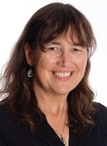
Éva Plagányi Commonwealth Scientific and Industrial Research Organisation (CSIRO), Australia
Session 1 Plenary Speaker
Dr. Éva Plagányi is a Research Group Leader and Senior Principal Research Scientist with CSIRO Environment, Brisbane. Her research is strongly interdisciplinary and focuses on modelling of marine resources and ecosystems for application to management. Her work involves stock assessment modelling, ecosystem modelling, management strategy evaluation (MSE) and climate change impacts and adaptations. Éva leads the development of MICE (Models of Intermediate Complexity for Ecosystem assessments) to increase uptake of ecosystem-based fisheries management, and to integrate climate change considerations. She was a member of the Lenfest Forage Fish Task force (2009–2014), which focussed on global recommendations for forage fish management, and a member on an International Review Panel regarding fishing closures adjacent to penguin breeding colonies in South Africa. Éva has a dual biological-mathematical background and has collaborated broadly internationally.
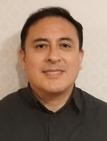
Erich Diaz Acuña Instituto del Mar del Perú (IMARPE), Peru
Session 1 Invited Speaker
Dr. Erich Diaz Acuña is a Fisheries Biologist at the Instituto del Mar del Peru (IMARPE). His research focuses on understanding the biological, ecological, and fishery-related factors that drive the population dynamics of pelagic resources supporting Peruvian fisheries, applying stock assessment models to evaluate the historical and current status of these pelagic stocks, developing management recommendations that are robust to various sources of uncertainty (including those arising from the highly variable Peruvian upwelling ecosystem and from human behavior), and studying fisher behavior and fleet dynamics. Erich leads the Pelagic Resources Stock Assessment Office at IMARPE. He participates in a number of working groups focused on management strategy evaluation and the implementation of the ecosystem approach to fisheries, and also serves as a national delegate to various regional fisheries management organizations.
New Approaches for Assessment of Human Impacts Beyond Fisheries
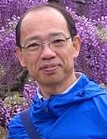
Shin-ichi Ito
Atmosphere and Ocean Research Institute, The University of Tokyo, Japan
Session 2 Plenary Speaker
Dr. Shin-ichi Ito is a Professor of Fisheries Environmental Oceanography at the Atmosphere and Ocean Research Institute, the University of Tokyo, Japan. He is broadly interested in climate impacts on ocean ecosystems, with particular interest in the formation of ecological hotspots by ocean currents, fish response to climate variability and change, and comparative studies on fish responses to global climate. Shin-ichi was responsible for the development of a fish growth model coupled to the lower-trophic-level ecosystem model NEMURO.FISH (North Pacific Ecosystem Model for Understanding Regional Oceanography For including Saury and Herring). His laboratory conducts swimming and respirometry experiments to estimate the parameters in the model, rearing experiments to estimate the relationship between water temperature and otolith oxygen isotope ratio to estimate the migration routes of fish species using otolith microchemistry information, and ocean environmental DNA (OceanDNA) monitoring to detect the distribution of fish species and to assess overlap of microplastic distribution and fish species. Shin-ichi serves on a couple of editorial boards of peer-reviewed journals, as a lead author of the IPCC (Intergovernmental Panel on Climate Change) WG-II Sixth Assessment Report, and as the President of the Japanese Society of Fisheries Oceanography.
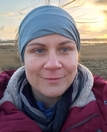
Ute Daewel Helmholtz-Zentrum Hereon, Germany
Session 2 Invited Speaker
Dr. Ute Daewel is an expert in the field of biological-physical interactions in marine ecosystem by developing and utilizing relevant coupled model systems. Her work specifically focusses on the development of coupled biological-physical models that include both biogeochemistry and higher trophic levels as tools to understand the natural variability in and the anthropogenic impacts on marine ecosystems. During her PhD at the University of Hamburg, she focused on understanding the environmental impacts on early life stages of fish in the North Sea. She subsequently held postdoctoral positions at the University of Bergen and at the Nansen Environmental and Remote Sensing Center in Bergen, Norway. Since 2016, Ute has been a research scientist at the Helmholtz-Zentrum HEREON in Geesthacht, Germany, where she now leads the Department of Matter Transport and Ecosystem Dynamics. In recent years, a special emphasize of Ute’s research is on understanding human impacts on marine ecosystems, including e.g. offshore renewable energy, fisheries, environmental protection measures. Her work on large-scale effects of offshore wind farms on ecosystem productivity has helped draw attention to the systematic, region-wide changes we foresee under the extensive offshore wind energy plans for the North Sea.
Life History Variation Across Space, Time, and Ontogeny: Implications for Populations, Ecosystems, and Fisheries
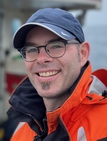
Dominique Robert
University of Quebec in Rimouski, Canada
Session 3 Plenary Speaker
Dr. Dominique Robert is a Professor and Canada Research Chair in Fisheries Ecology based at the Institute of Marine Science, University of Québec at Rimouski, Canada. His research program broadly investigates how variability in life history traits drives growth, survival, and subsequent recruitment strength. Over the years, he has relied on small pelagic fishes such as Atlantic mackerel, capelin and Atlantic herring as model species to better understand how spatiotemporal variability in growth performance during the larval and juvenile stages influences population dynamics. Based on that work, Dominique has recently led the efforts of an international working group in revisiting the ‘Growth-Survival Paradigm’ during the early life stages of fish, revealing how variability in early growth characteristics can influence the strength and direction of growth-selective mortality. Dominique currently serves as President of the Early Life History Section of the American Fisheries Society.
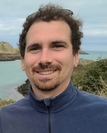
Pablo Brosset Rennes-Angers Agro Institute, France
Session 3 Invited Speaker
Dr. Pablo Brosset is an Associate Professor at the Fisheries and Aquatic Sciences Center at Institut Agro in Rennes, France. His research focuses on understanding how environmental variability influences individual life-history traits across a wide range of small pelagic fish species, life stages, and geographic areas. Pablo interests also lie in the drivers of fish recruitment, particularly the role of predator-prey abundance and temporal synchrony (e.g. match-mismatch dynamics). His recent work explores how physiological biomarkers can be used to assess the impact of environmental stressors on the health of small pelagic fish and how these insights could inform fisheries management decisions. Pablo received his PhD in Marine Ecology from the University of Montpellier in 2016.
Forage Fish and Food Webs: Trophic Dynamics of Small Pelagic Fish, from Freshwater to the Open Ocean
Heidi Pethybridge Commonwealth Scientific and Industrial Research Organisation (CSIRO), Australia
Session 4 Plenary Speaker
Dr. Heidi Pethybridge is a Senior Researcher at CSIRO, Australia’s national science agency, where she leads the Acoustic and Pelagic Ecosystem Team. Her research focuses on the trophic ecology and bioenergetics of oceanic species like sharks, squid, tunas, and small pelagic and mesopelagic fishes, using diet analysis, biochemical tracers (stable isotopes, fatty acids, and trace metals), and ecosystem modelling. Her work has supported ecosystem-based management and informed policy across fisheries, seafood nutrition, aquaculture, deep-sea mining, and marine conservation. Heidi currently supervises the trophic component of the SEA-MES Project investigating ecosystem change off south-east Australia, and her team manages the IMOS Bioacoustics sub-facility, which curates one of the world’s largest datasets on mesopelagic abundance, spanning over one million square km. She also co-chairs the international IMBeR-CLIOTOP program, contributing to global studies on climate impacts, trophic ecology, and mercury concentrations in mesopelagic fishes, which are key prey for top predators and vital to ocean carbon cycling.
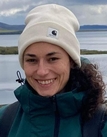
Liz Loutrage University of California San Diego, USA
Session 4 Invited Speaker
Dr. Liz Loutrage is a postdoctoral researcher at both the Scripps Institution of Oceanography at the University of California, San Diego, and at the University of Miami. She earned her Ph.D. in marine ecology from the University of La Rochelle in France, conducted jointly at the French Research Institute for the Exploitation of the Sea (Ifremer) and the Pelagis Observatory. Her research investigates the trophic ecology of deep-pelagic fish and crustacean species, using methods such as stable isotope analysis and functional trait-based approaches. More specifically, she studies the mechanisms of trophic segregation and the diversity of feeding strategies within this community along the water column. Recently, her work has investigated the role of mesopelagic fish gut microbiomes in transforming organic matter as it passes through the deep ocean.
Spatiotemporal Dynamics of Small Pelagic Fishes in a Changing Ocean
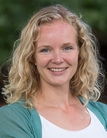
Nina Overgaard Therkildsen Cornell University, USA
Session 5 Plenary Speaker
Dr. Nina Overgaard Therkildsen is an Associate Professor in the Department of Natural Resources and the Environment at Cornell University, USA. Her research integrates genomic approaches to investigate adaptive divergence and microevolution in marine and anadromous fishes, with a particular focus on responses to anthropogenic pressures such as size-selective harvesting, climate change, and habitat degradation. A central aim of her work is to make whole-genome screening more accessible and cost-effective for non-model species, and to translate resulting high-resolution insights into actionable guidance for fisheries management and conservation. Nina earned her Ph.D. from the Technical University of Denmark in 2012 and completed postdoctoral training at Stanford University before joining the Cornell faculty in 2016.
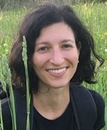
Eleni Petrou Alaska Science Center, US Geological Survey (USGA), USA
Session 5 Invited Speaker
Dr. Eleni Petrou is a Geneticist at the U.S. Geological Survey Alaska Science Center (ASC), in Anchorage, USA. As lead of the population genetics program at the ASC, she studies population connectivity, individual dispersal, and the demographic and evolutionary histories of fish and wildlife species on federally managed lands. She also uses genomics and bioinformatics to develop high-throughput tools aimed at supporting the management and conservation of wild populations. More broadly, she is interested in the mechanisms that shape genetic diversity and how human activities and ecosystem change impact this diversity. Eleni received her PhD in Aquatic and Fishery Sciences from the University of Washington in 2019.
Managing Small-Pelagic Fisheries within an Ecosystem Approach: Lessons, Challenges, and Outlook

Mark Dickey Collas
DickeyCollasMarine, linked to National Institute of Aquatic Resources, Denmark
Session 6 Plenary Speaker
Dr. Mark Dickey-Collas is an experienced marine scientist, operating independently as DickeyCollas Marine, with expertise in the provision of scientific advice to governments and intergovernmental organisations for marine conservation, fisheries, biodiversity and ecosystem-based management. DickeyCollas Marine specialises in knowledge for policy development, and operational decision-making, in facilitation, and in the strategic development of marine science programmes around the world. Its client base shows the current unique breath of Mark’s expertise from active engagement in fish stock assessments in Europe and North America, to academic research on ecosystem-based management, to reviews of organisational performance and contributing to the debate and implementation of international agreements such as the GBF (Global Biodiversity Framework) and BBNJ (Biodiversity Beyond National Jurisdiction).
Mark has over 35 years’ experience across fisheries and biodiversity, with a decade in Northern Ireland, in the Netherlands, and in ICES HQ, Denmark. As Chair of the ICES Advisory Committee, he oversaw the production and delivery of >250 pieces of annual advice to governments and proactive stakeholder engagement.
Mark is an adjunct professor at DTU-Aqua (National Institute of Aquatic Resources at Technical University of Denmark), Chair of the IUCN (International Union for Conservation of Nature) Fisheries Expert Group, a council member of the Marine Biological Association of the UK and a member of the Defra (UK) biodiversity expert committee. He chaired the FAO expert panel on CITES listing of aquatic species and is a former member of the IMBeR Science Steering Committee.
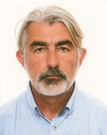
Ali Cemal Gücü Middle Eastern Technical University (METU), Turkiye
Session 6 Invited Speaker
Prof. Ali Cemal Gücü is a marine biologist at the Institute of Marine Sciences, Middle East Technical University. His research focuses on small pelagic fish in the Black Sea and Eastern Mediterranean, with a particular interest in their behavioral shifts and ecological responses to environmental change. In the Black Sea, he investigates the transformations observed over the past four decades in the most abundant stock of the GFCM (General Fisheries Commission for the Mediterranean) area, the Black Sea anchovy, aiming to understand the drivers behind these changes. In the northeastern Mediterranean, his work examines the resilience of native fish communities under increasing pressure from non-indigenous species. Prof. Gücü is also closely involved in the GFCM’s Black Sea activities and currently serves as Chairperson of its Sub-regional Group on Stock Assessment for the Black Sea (SGSABS).
Integrating Social Metrics into Economic Growth Strategies for Small Pelagic Fisheries
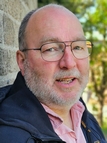
Cor Blonk
Pelagic Freezer Trawler Association
Session 7 Plenary Speaker
Cor Blonk started his career in the fishing industry more than 25 years ago in the position of Secretary of Labour Affairs of the Dutch Pelagic Shipowners Association of high sea fisheries and the Pelagic Freezer-trawler Association, a European pelagic shipowners association. In his profession, Cor is involved in a large spectrum of crew related topics, such as collective bargaining agreements and implementation in national legislation of international legislation. He is the founder and one of the directors and chair of the Fishing Industry Safety and Health (FISH) Platform, the world leading group of experts involved in safety and health in the fishing industry, where representatives of workers, employers, administrations, fisheries schools, and maritime training institutes meet, to share new developments and expertise on safety and health in the fishing industry. The FISH Platform was also the organisation that developed a syllabus containing a more detailed description of requirements for the STCW-F Basic Safety Training for All Fishing Vessel Personnel, which is negotiated during the revision of the STCW-F. He is also a key stakeholder from the side of the fishing industry with respect to maritime education and training in The Netherlands.
Cor has been involved in the development of IMO/ILO/FAO Safety Recommendations for decked fishing vessels of less than 12 metres in length and undecked fishing vessels, took part in the negotiations on the Work in Fishing Convention at the ILO in 2004, 2005 and 2007 and is a member of the Dutch delegation to IMO HTW for the comprehensive review of IMO STCW-F during HTW 3, t/m 9 and during the negotiations on the Cape Town Agreement. Furthermore, he was participant in the ILO expert meeting on migrant fishers in September 2017.
Mariana Toussaint Food and Agriculture Organization of the United Nations (FAO)
Session 7 Invited Speaker
Ms. Mariana Toussaint is a Fishery Officer working at the Food and Agriculture Organization of the United Nations (FAO) headquarters in Rome (Italy) since 2016. Through the years, her focus has been on fisheries policy and management, issues related to international trade and market access, international fisheries trade agreements and market-based instruments, social responsibility, decent work, social protection and gender. She is also part of the FAO Team on GLOBEFISH – a multidonor-funded project that promotes and provides up-to-date information on trade, trends and markets of fisheries and aquaculture products. Mariana has a Ph.D. in Social Sustainability, cum laude, a master’s degree in International Trade, and a bachelor’s degree in Trade. All her studies have been carried out through the University of Vigo (Spain). In 2020, she received the award for the Best Research in Ethics and Responsibility from the EAE Business School.
Maximizing Value and Sustainability in Small Pelagic Fisheries: Markets, Nutrition, and the Post-Harvest Sector
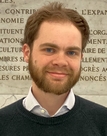
William Griffin
Food and Agriculture Organization of the United Nations (FAO)
Session 8 Plenary Speaker
William Griffin is an economist at the Food and Agriculture Organization (FAO) with expertise in fisheries economics, data analytics and global seafood markets. He contributes to major FAO publications, including The State of World Fisheries and Aquaculture and the FAO Food Outlook. Through his work with the FAO GLOBEFISH project, William provides market insights on fishmeal, fish oil and the wider fish economy, while overseeing data-driven systems that streamline information for policymakers and industry stakeholders.
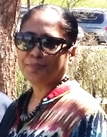
Fatima Ferdouse International Trade Consultant
Session 8 Invited Speaker
Mrs. Fatima Ferdouse is a freelance consultant on international fishery trade and marketing. During her 33 years full time employment with the UN-FAO and INFOFISH, Fatima worked in advisory capacity with fishery industries, policy makers and development organizations in the Asia-Pacific region and beyond. At present, she is the Consultant Seafood Market Specialist at FAO-GLOBEFISH. Mrs. Ferdouse holds a Master’s Degree in Economics. She lives in Malaysia and Bangladesh.
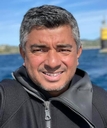
Marcelo Hidalgo Fishing Industry Association, Papua New Guinea
Session 8 Invited Speaker
Marcelo Hidalgo is the Chief Operating Officer of the Fishing Industry Association in Papua New Guinea. He is also the founder and director of SeafoodMatter. In his more than 27 years of experience in the aquaculture and fisheries supply chain, Marcelo has been advising large retail companies, tuna fleets, seafood processing suppliers, NGOs, and governments in the application and improvement of responsible sourcing and sustainable matters, creating a change that drives the global seafood supply value chain. His experience spans from farm management, standard development, strategic planning, and stakeholder engagement. Marcelo developed and implemented the Responsible Sourcing Policy (RSP) that has created a positive impact on the fisheries on land and at sea. Currently, he sits on the board of several environmental NGOs, for instance: Global Sustainable Seafood Initiative (GSSI), Global Dialogue on Seafood Traceability (GDST), Global Ghost Gear Initiative (GGGI), Marine Stewardship Council (MSC), MarinTrust, and Aqualit. He has been working in Small Pelagic Fish and Small Scale Fisheries that include: Artisanal Pelagic Longliners in Ecuador, and Lobster, Mud Crab, and Prawn in Papua New Guinea. Marcelo holds a Bachelor’s degree in Aquaculture and a Post-Graduate Diploma in International Trade, Business, and Commerce from the Escuela Superior Politécnica del Litoral in Ecuador.
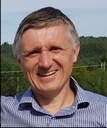
Jogeir Toppe Food and Agriculture Organization of the United Nations (FAO)
Session 8 Invited Speaker
Jogeir Toppe has a background in Nutrition, with a focus on fish as food. He has spent much of his career on looking at how fish could play a greater role in reducing levels of food insecurity and malnutrition. He has been working as a Fisheries Officer at the Food and Agriculture Organization (FAO) of the United Nations for almost 19 years. During his years at FAO, Jogeir has led activities on improving the utilization of the fishery resources, always targeting low-cost but potentially high impact solutions. This includes highlighting the role small pelagic fish could play for food security and nutrition, developing and promoting nutritious, safe, tasty and culturally acceptable fish products for vulnerable populations, reducing post-harvest losses and improving the use of fish processing side streams, such as heads, bones, skin and viscera for food or other purposes. Prior to joining FAO, Jogeir worked as a scientist focusing on aquaculture feed development and improved use of waste from fish processing.
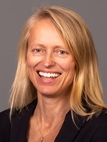
Libby Woodhatch MarinTrust
Session 8 Invited Speaker
Libby Woodhatch has had a varied career in the seafood supply chain and standards development spanning over 25 years. Prior to taking on the role of Executive Chair of MarinTrust, the global standard for marine ingredients, she was Head of Advocacy at Seafish, where her remit included the development of the Responsible Fishing Scheme (RFS) standard and Seafish’s wider programme in seafood ethics. Libby was CEO of the industry body Seafood Scotland for nine years, where she helped improve the value of return to the Scottish seafood industry. During this time, she also sat on the Marine Stewardship Council’s Stakeholder Council. Libby recently completed a 9-year term as Vice-Chair of the Fishermen’s Mission charity, which provides welfare and support to fishermen and their families. Libby holds a BSc (Hons) in Fisheries Science from the University of Plymouth and an MSc in Fisheries Development and Planning from the University of Hull.
Modeling Human Choices Regarding Harvest and Management of Small Pelagic Stocks
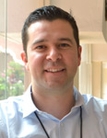
Andres Cisneros-Montemayor
Simon Fraser University, BC, Canada
Session 9 Plenary Speaker
Dr. Andrés Cisneros-Montemayor is a resource economist specializing on ocean and coastal social-ecological systems. He is an Assistant Professor at the School of Resource and Environmental Management, Simon Fraser University, Canada, and Deputy Director of the Nippon Foundation Ocean Nexus Center, one of the largest interdisciplinary ocean research networks in the world. Andrés is very actively engaged in debates, advisory councils, and negotiations on equity and sustainable development internationally and in Canada. He has published over 100 peer-reviewed articles, 20 book chapters, a textbook, and many technical reports and science communication articles. His lab aims to support students from everywhere in the world that are passionate about learning how to best support coastal communities.
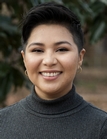
Seleni Cruz Texas A&M University, USA
Session 9 Invited Speaker
Dr. Seleni Cruz is an Assistant Professor of Resource and Environmental Economics at Texas A&M University at Galveston. She holds a PhD in Environmental Economics from the University of Delaware. Her research focuses on climate adaptation in natural resource-dependent communities, using econometric and bioeconomic tools to understand how climate variability influences labor allocation and resource use. Dr. Cruz’s recent work examines how El Niño Southern Oscillation (ENSO) events affect fishing behavior and household income in Mexican coastal communities, and how short-term warming events impact biological and economic outcomes in the U.S. blue crab fishery. She is particularly interested in the design of climate-ready policies for sustainable fisheries.
